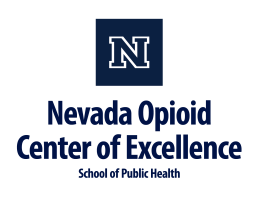Continuing education credit is not offered for these on-demand videos which are for informational purposes only. For courses offering continuing education, please checkout our live events or visit our partners at CASAT Learning.

Many trainings and resources focus on what research has shown to be effective at preventing substance misuse. However, we also know through research what is NOT effective in preventing substance misuse and in some cases is harmful. Yet communities across the nation continue to implement these ineffective and sometimes counterproductive strategies. The focus of this webinar will be on identifying these ineffective approaches. We will also spend time discussing strategies prevention professionals can use to address the resistance often expressed by individuals and organizations reluctant to change long-standing, well-liked prevention practices.

This is the fourth session in a comprehensive 4-part series that is designed to strengthen Nevada’s approach to opioid and other substance use disorders, with special emphasis on maternal health and family systems. The series is intended to provide participants with data, tools, and real-world perspectives to improve prevention, treatment, and recovery supports across the lifespan.

This is the third session in a comprehensive 4-part series that is designed to strengthen Nevada’s approach to opioid and other substance use disorders, with special emphasis on maternal health and family systems. The series is intended to provide participants with data, tools, and real-world perspectives to improve prevention, treatment, and recovery supports across the lifespan.

This is the second session in a comprehensive 4-part series that is designed to strengthen Nevada’s approach to opioid and other substance use disorders, with special emphasis on maternal health and family systems. The series is intended to provide participants with data, tools, and real-world perspectives to improve prevention, treatment, and recovery supports across the lifespan.

This is the first session in a comprehensive 4-part series that is designed to strengthen Nevada’s approach to opioid and other substance use disorders, with special emphasis on maternal health and family systems. The series is intended to provide participants with data, tools, and real-world perspectives to improve prevention, treatment, and recovery supports across the lifespan.

Substance use disorders are common in the United States, with 2024 data indicating that more than 1 in 4 (25.5%) of persons 12 years of age or older used an illicit drug in the past year. The availability of highly effective direct-acting antiviral (DAA) medications has radically changed the assessment and consideration of substance use, and more specifically opioid use, in hepatitis C virus (HCV) treatment decisions. This 90-minute webinar will provide an overview of the hepatitis C virus (HCV), including a focus on defining key epidemiological aspects, contrasting recent treatment advancements, and evaluating the integration of HCV testing and treatment into medications for addiction treatment (MAT)/medications for opioid use disorder (MOUD) programs and opioid treatment programs (OTPs). Attendees will learn practical strategies to improve HCV management and enhance patient outcomes.
